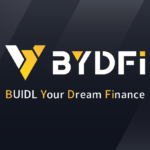Now Reading: Can an ‘Adulting Class’ Actually Help You With Your Finances?
-
01
Can an ‘Adulting Class’ Actually Help You With Your Finances?
Can an ‘Adulting Class’ Actually Help You With Your Finances?
:max_bytes(150000):strip_icc()/GettyImages-1500222822-439ab59d526345b0bb5d07c8f5e11ba3.jpg?ssl=1)
:max_bytes(150000):strip_icc():format(jpeg)/GettyImages-1500222822-439ab59d526345b0bb5d07c8f5e11ba3.jpg)
Adulting classes might sound like a trend, but they can offer something valuable that many people missed in school: navigating real-world finances.
From budgeting and taxes to car care and grocery planning, these courses aim to prepare people for real-life financial decisions. But can they really change the course of your finances, or are they just a helpful starting point?
Find out how adulting classes can build confidence, support smarter money choices, and what financial lessons matter most, according to a Harvard finance professor.
Key Takeaways
- Adulting classes teach practical financial skills like budgeting, credit basics, and tax prep.
- These programs are especially helpful for people who didn’t receive formal personal finance education.
- While not a replacement for formal financial education, they can lay the groundwork for stronger financial habits.
- Confidence, awareness, and baseline knowledge may be the most valuable takeaways from a well-designed adulting class.
Why Are Adulting Classes Even Necessary?
More U.S. high schools now require personal finance education, but there’s still a long way to go. According to the latest biannual survey results, over half of U.S. states now require students to take a personal finance class to graduate.
It’s a big step forward, but not a complete solution. These programs vary in quality, and many young adults still leave school unsure how to manage their real-world finances. A recent Credit Karma survey found that 49% of Gen Z say planning for the future feels pointless, so they would rather spend freely now.
That mindset may come from not knowing what tools they have to build a stable financial future. Adulting classes help fill the gap by covering practical everyday topics, including budgeting, credit scores, tax prep, retirement planning, and even smart grocery shopping.
Bridging the Gap Between School and Real Life
Adulting classes focus on real-world skills that many people never learned in school. While the formats may vary, the goal is the same: to help people feel more prepared for everyday adult responsibilities.
They’re offered through community centers, nonprofits, local schools, and even TikTok creators. The main benefit participants gain is not the knowledge, but the confidence.
That was the case for Heather Jeal, who took a women’s auto maintenance course in the 1970s. She explained over email, “The most useful thing I got from this course was confidence.”
Note
Life skills like cooking, car care, job prep, or comparison shopping aren’t always labeled as financial education, but they can still positively impact your wallet.
That knowledge paid off most recently when her car suffered electrical issues. Because she understood how the system worked, she was able to avoid unnecessary and expensive repairs. “Eventually, [my mechanic] tracked it down to the AC system, which they disconnected, and the car now runs just fine. They charged me less than it cost to replace the battery.”
Knowing how your car works or how to plan meals at home may not sound like financial literacy, but those skills can help you spend wisely and make more informed choices, saving you money over time.
What Every Financial Literacy Class Should Teach
Not all financial education is created equal. Whether you’re learning in a high school classroom, a community workshop, or a short online course, certain concepts are especially relevant for making smart financial choices.
Randy Cohen, a senior lecturer in the Finance Unit at Harvard Business School, said understanding compound interest should be a priority. “If I had… an average high school student’s attention and I had five minutes,” he said, “I’d say, look, ‘you really need to understand the power of compounding.’”
He also pointed to taxes, inflation, and transaction costs as essential topics that can quietly eat away at long-term wealth. A solid class, no matter the setting, should leave people with a better sense of how these forces work and how to plan around them.
Cohen’s advice boiled down to two core questions:
- How much are you spending versus saving?
- What are you doing with the money you save?
These may sound simple, but they are the backbone of nearly every financial decision you will make. If your financial literacy course is helping you answer those two questions, you’re on the right track.
Tip
The cost of “adulting classes” can vary depending on the length, format, and the exact subject matter discussed.
The Bottom Line
Adulting classes can’t cover everything, but they can give learners the confidence and practical skills to start making better financial choices. For people who didn’t grow up learning how to budget, file taxes, or think long-term about their money, even a short class can help them get better oriented.
These programs aren’t a substitute for formal financial education, but they can still offer real value. Knowing how to cook at home, avoid unnecessary car repairs, or understand how interest works can help you make smarter decisions day-to-day that compound over time.
As Cohen put it, “[People] do the thing that they’re aware of, and we should help people be more aware.” When people feel more confident and financially informed, they’re more likely to make better decisions, avoid costly mistakes, and build long-term stability.













:max_bytes(150000):strip_icc()/GettyImages-874879700-05732dfce0794a68bf311a27890c2d05.jpg?w=1024&resize=1024,1024&ssl=1)
















:max_bytes(150000):strip_icc()/GettyImages-874879700-05732dfce0794a68bf311a27890c2d05.jpg?w=150&resize=150,150&ssl=1)
